5 Best CMS For SEO: Which One Optimizes Content Management?
Feb 11, 2026

Feb 11, 2026

Feb 11, 2026

Feb 10, 2026

Feb 09, 2026

Feb 07, 2026

Feb 06, 2026

Feb 06, 2026

Feb 05, 2026
Sorry, but nothing matched your search "". Please try again with some different keywords.

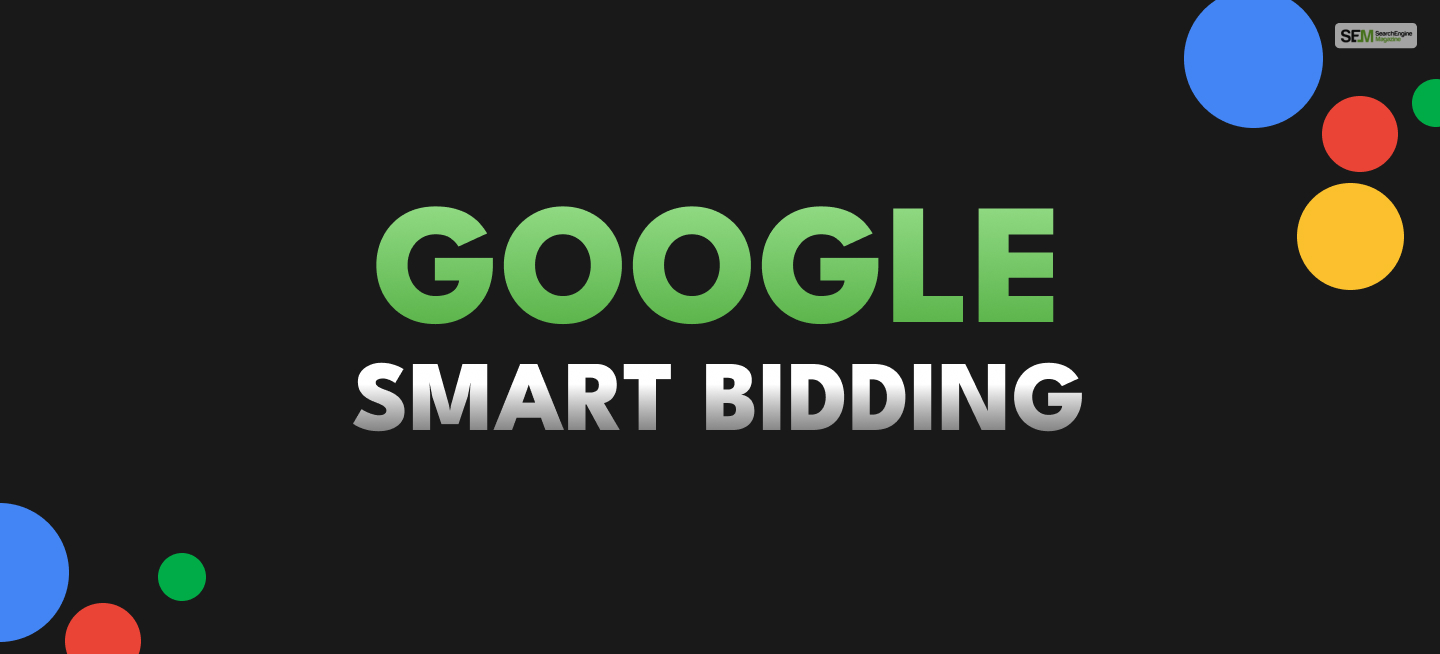
Smart Bidding is an automated bidding strategy in Google Ads that uses machine learning and advanced algorithms to optimize bids for conversions or conversion value in every auction.
It utilizes historical performance data and real-time signals to make informed bidding decisions to achieve specific campaign goals.
Read this post to learn more about Google Smart Bidding and how you can use it to drive conversions.
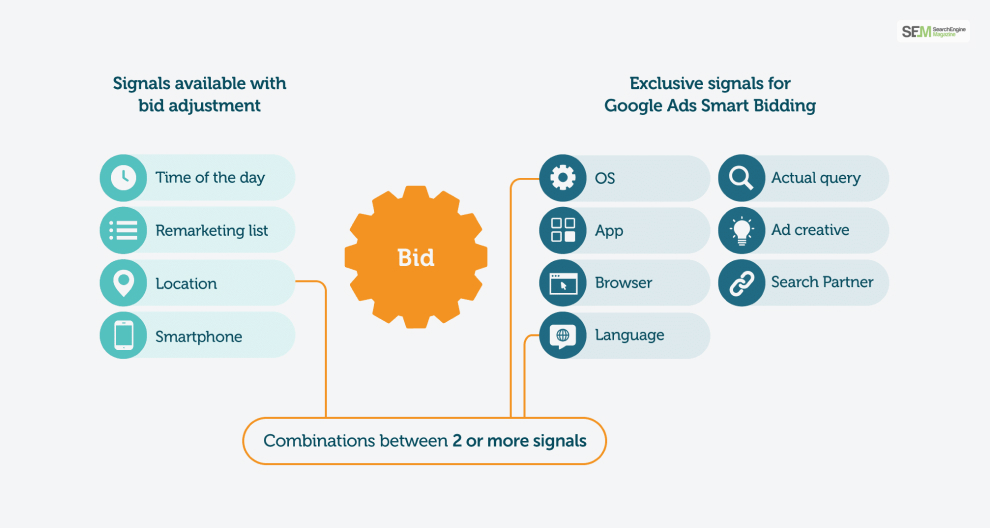
Using Google Smart Bidding in Google Ads offers several compelling reasons for advertisers looking to optimize their ad campaigns. They are:
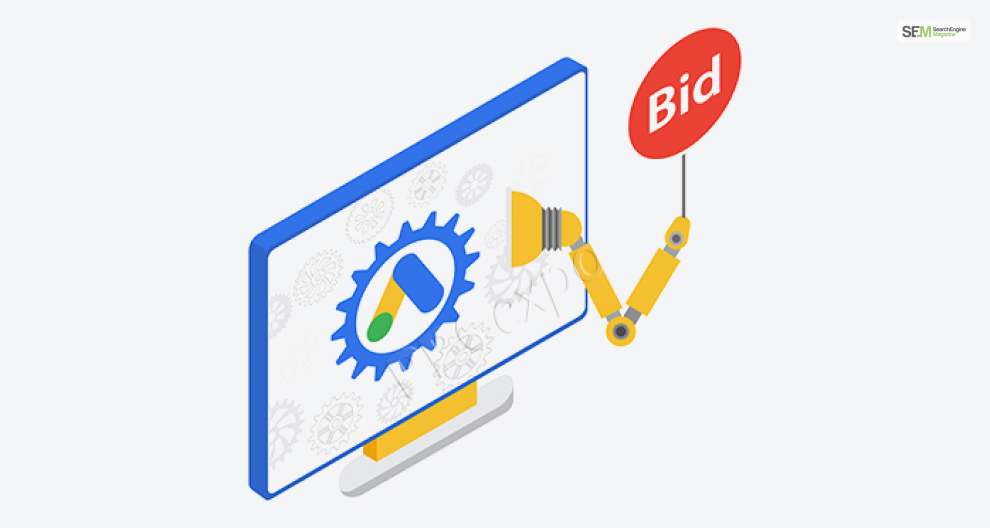
Efficient bid management in Smart Bidding automates the bidding process using machine learning to make real-time adjustments in bidding strategies.
Therefore, Google will use various signals and historical data for machine learning and automation.
Smart bid adaptive algorithms continuously learn and adapt to changes in user behavior, market conditions, and campaign performance. Therefore, it will optimize bids for maximum conversions.
You can use Smart Bidding strategies like Target CPA or Target ROAS. This lets you focus on maximizing conversions or conversion value while improving return on ad spend (ROAS).
Therefore, efficiently allocate your budget by bidding more aggressively in auctions likely to drive valuable actions. Consequently, you can maximize the impact of the advertising budget.
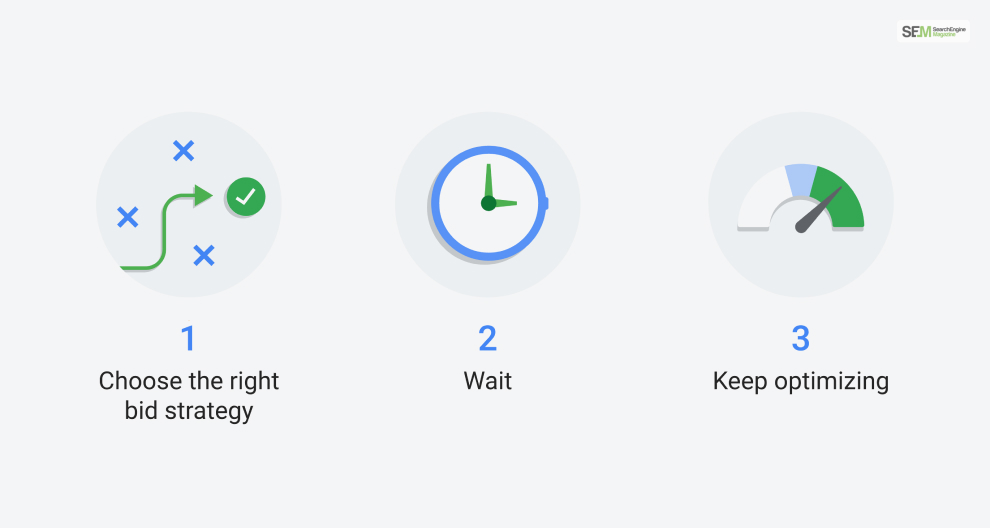
Automated Bid Management saves time by automating bid adjustments. Therefore, marketers can focus on higher-level strategies, creative optimization, and overall campaign management.
Moreover, real-time optimization in Smart Bidding continuously optimizes bids in real-time, reacting to changing conditions swiftly and efficiently.
Responding to changes using Smart Bidding lets you adapt quickly to fluctuations in user behavior, seasonality, and market dynamics.
Therefore, this ensures that bids remain effective and aligned with current conditions.
In addition, flexible controls in automation allow you to set bid limits or adjust targets to accommodate specific business requirements.
You must use data-driven audience insights relying on historical performance data and real-time signals to make informed bidding decisions.
In addition, it will help you use large datasets and machine learning algorithms. Therefore, give smart mobile bidding a go as well.
Improved Targeting optimizes bids for different segments, devices, locations, or audience lists, allowing for more precise targeting and better performance.
Therefore, optimizing your Smart Bidding campaigns lets you continuously learn from campaign data, refining bidding strategies to improve campaign performance. This helps you get more inbound leads as a result.
Campaign-Level or Portfolio-Level strategies offer the flexibility to apply smart bidding at the campaign level or across multiple campaigns in a portfolio.
Therefore, it provides both broad and granular optimization.
However, adjusting the settings lets advertisers control bid limits, targets, and other settings. Therefore, it enables smart ads customization aligned with specific business goals.
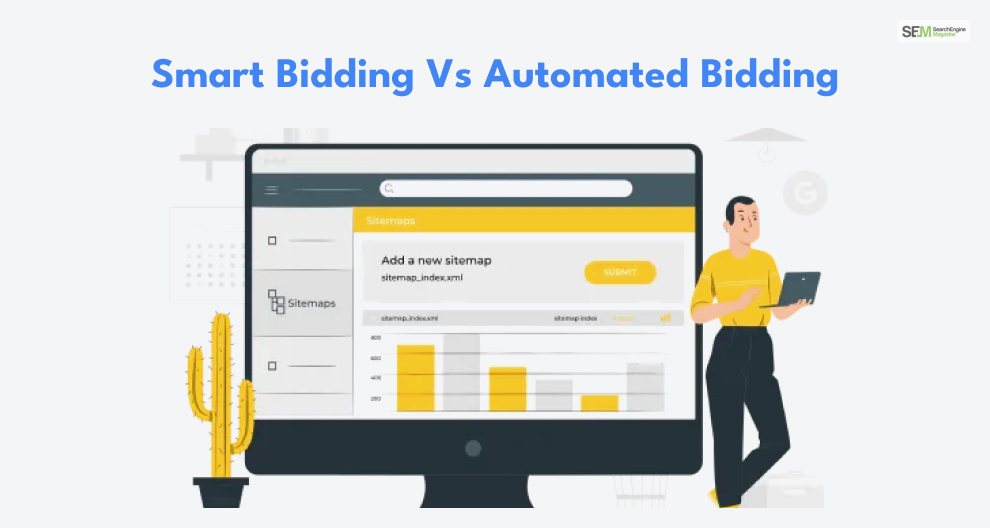
Smart Bidding and Automated Bidding are both bid management strategies in Google Ad Intelligence that automate the bidding process.
However, their scope, capabilities, and the level of sophistication in their automation are the same.
The main differences are:
Automated Bidding offers basic automation with limited customization, while Smart Bidding employs advanced machine learning algorithms for more sophisticated and adaptable automation.
Smart Bidding considers a broader range of signals and factors for bid adjustments than Automated Bidding, leading to more granular optimizations.
Smart Bidding provides more advanced and flexible bid strategies tailored to specific campaign objectives, allowing for adaptive controls and dynamic adjustments.
Smart Bidding heavily relies on data-driven insights and continuous learning. However, Automated Bidding might utilize less data analysis or machine learning to the same extent.
If you are confused about choosing between Smart Bidding and Automated Bissing, you must remember these two needs:
Smart Bidding suits Google Campaign Manager with specific performance goals and where more advanced bid strategies and adaptability are required.
Automated Bidding might be suitable for more straightforward campaigns, or when advertisers prefer more manual control over bid adjustments.
Here are some of the best Smart Bidding strategies in Google Ads, each tailored to achieve specific campaign objectives:

Objective: Optimize bids to achieve a specific target cost for each conversion or acquisition.
How It Works: Smart Bidding adjusts bids in real-time to get as many conversions as possible at or below the set CPA target.
Use Case: Ideal for campaigns focused on driving conversions at a specific cost, optimizing for lead generation or sales within a defined budget.
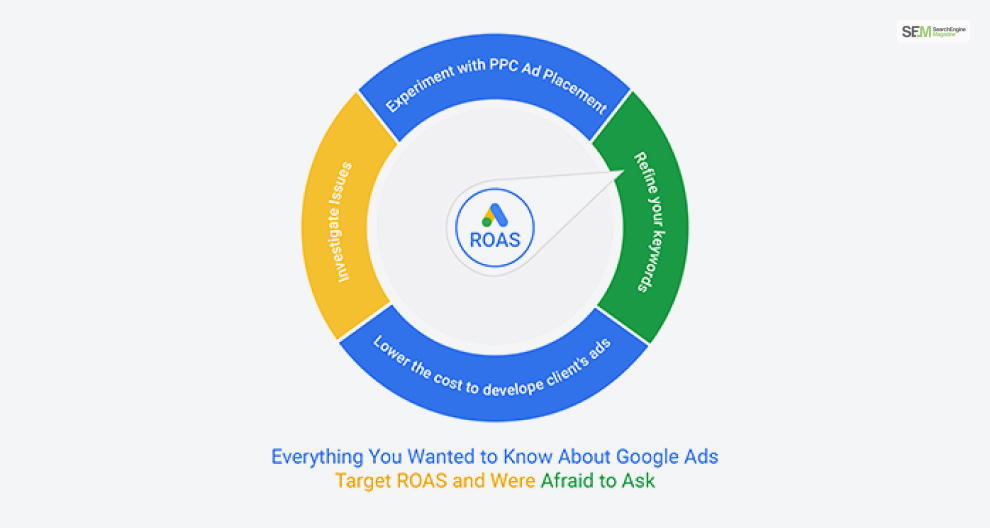
Objective: Optimize bids to achieve a specific return on ad spend.
How It Works: Smart Bidding adjusts bids to maximize revenue based on the target ROAS set by the advertiser.
Use Case: Effective for e-commerce campaigns where maximizing revenue is the primary goal, allowing advertisers to bid more for higher-value conversions.

Objective: Optimize bids to get the maximum conversions within a given budget.
How It Works: Smart Bidding automatically sets bids to maximize the total number of conversions without considering their individual values.
Use Case: Suitable for campaigns where the main objective is to generate as many conversions as possible without focusing on their individual values.

Objective: Optimize manual bids by automatically adjusting them in auctions more likely to lead to conversions.
How It Works: Smart Bidding automatically adjusts manual CPC bids based on the likelihood of conversion.
Use Case: Suitable for advertisers who want to retain some manual control over bids while leveraging automated bid adjustments for improved performance.

Objective: Optimize bids to help ads appear at the top of the search results or on the first page.
How It Works: Smart Bidding automatically sets bids to target specific ad positions on the search results page.
Use Case: Helpful for advertisers aiming for maximum visibility by ensuring their ads appear prominently on search results pages.

Objective: Optimize bids to outrank competitors’ ads in the search results.
How It Works: Smart Bidding automatically sets bids to help your ad outrank a specific competitor’s ad.
Use Case: Useful for advertisers focused on competitive positioning to ensure their ad appears above specific competitors in search results.
Smart Bidding in Google Ads offers a powerful way to automate bid management, optimize for conversions or ROI, save time, and leverage data-driven decision-making.
Therefore, it aims to improve campaign performance and efficiency while adapting to changing market conditions. Moreover, it ultimately helps advertisers achieve their advertising objectives more effectively.
However, if you have any more queries, comment your questions below!
Also read
Mashum Mollah is the feature writer of SEM and an SEO Analyst at iDream Agency. Over the last 3 years, He has successfully developed and implemented online marketing, SEO, and conversion campaigns for 50+ businesses of all sizes. He is the co-founder of SMM.
View all Posts

